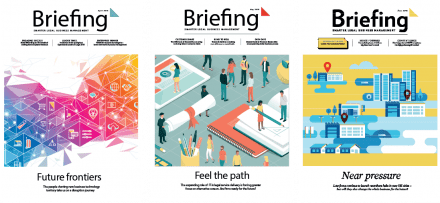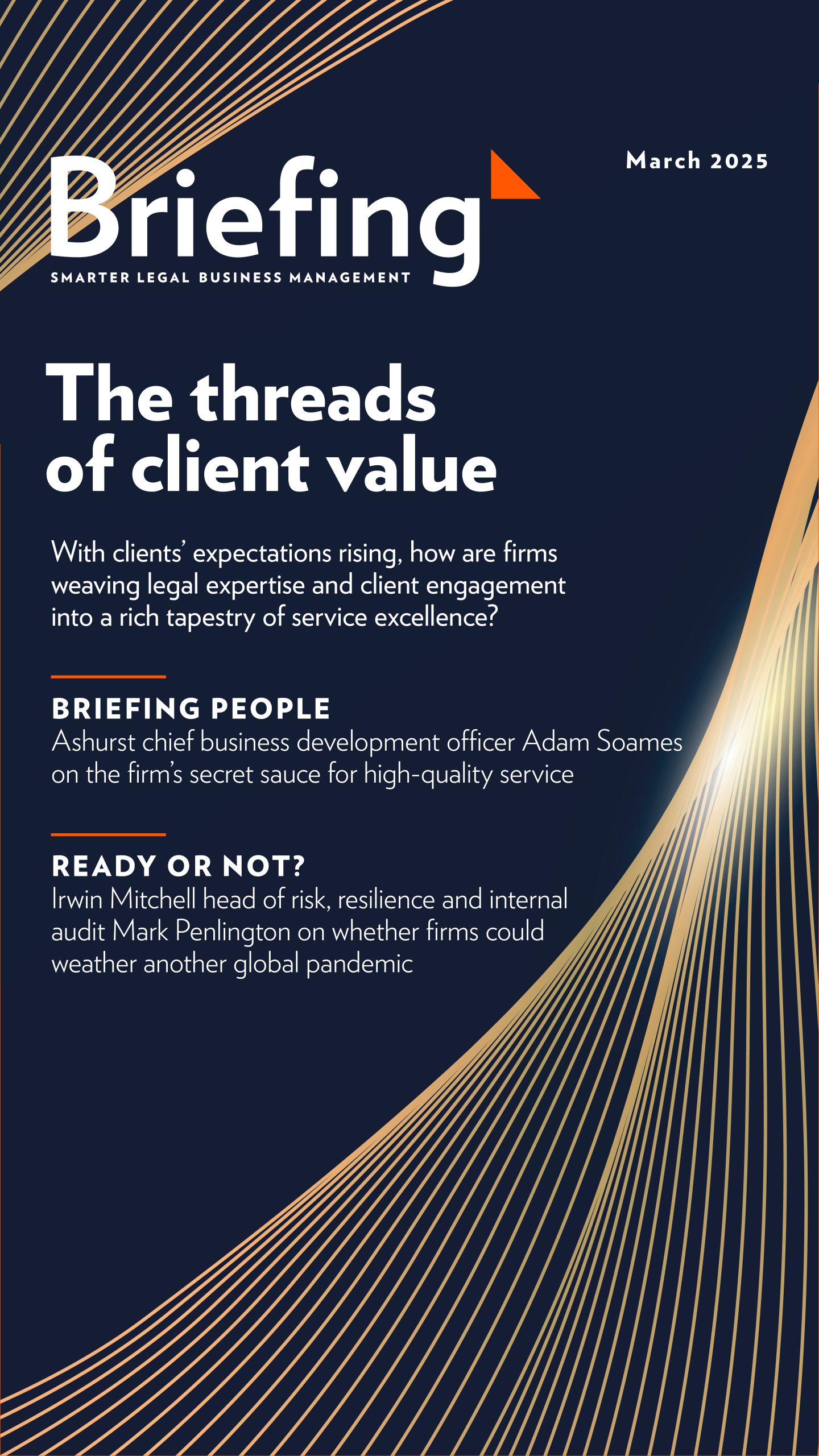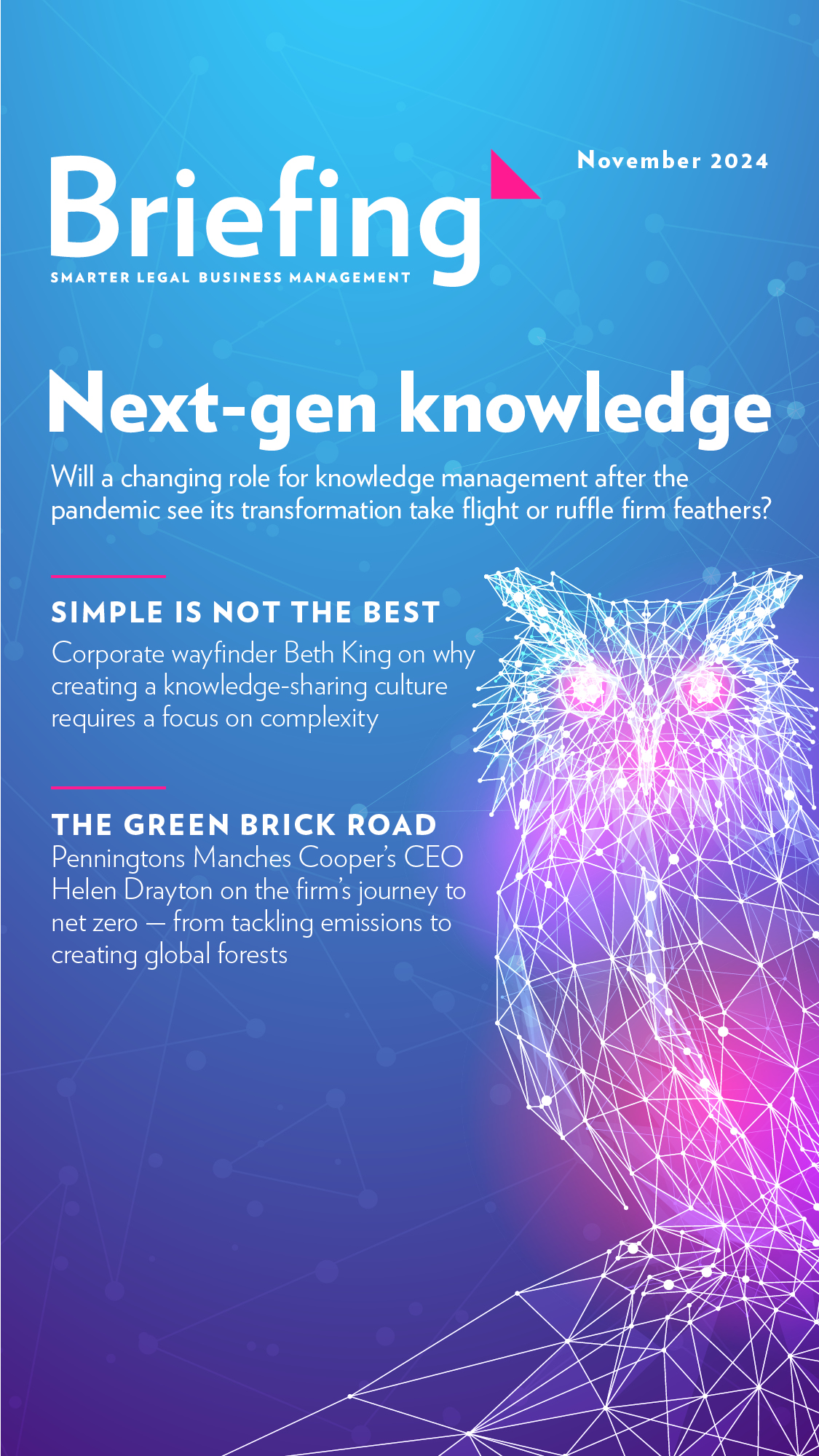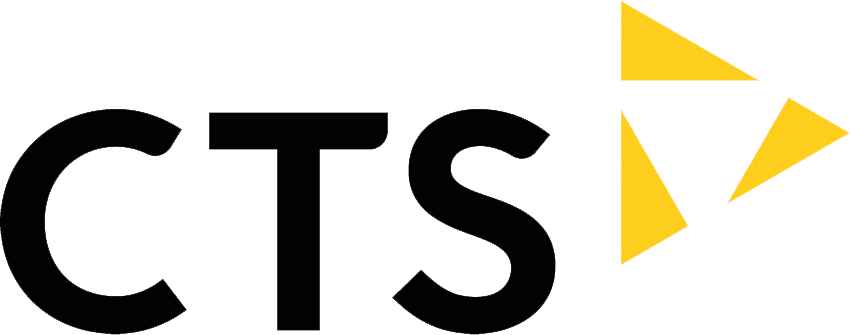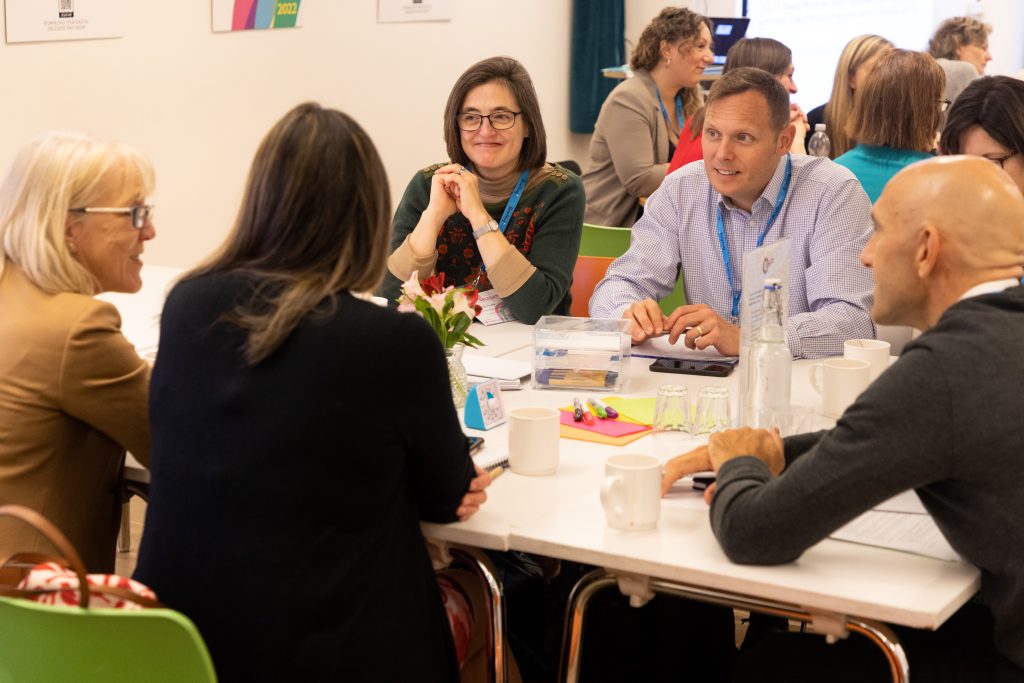
collaborative cafe culture
Briefing Knowledge Leaders enjoyed their annual gathering in November 2022, and the Knowledge Café format of focused but friendly discussion to facilitate useful ideas-exchange also made a welcome return. A safe and secure space (of course), Briefing won’t report specific comments coming from those at the tables – but here’s a fairly hearty flavour of the big themes and connections that flowed forth.
Channels of change
Tables each focused on one of four core pillars of KM’s decision-making world, with our event partners facilitating, sharing, and finding the common threads.
Jenni Tellyn from 3Kites heard all about the challenge of managing KM talent’s path in the firm as opportunities change and transformed working patterns play out. Does the professional support lawyer’s trajectory in 2023 need a new framework (complete with fresh titles)? Or is there something else that might motivate and nurture desired kudos? Knowledge work always requires acceptance of a certain ‘delayed gratification’ in terms of seeing results – so it needs to be clearly and consistently regarded as important to build that appreciation over time. And, with some knowledge lawyers attempting to return to fee-earning following the pandemic, there may now be a prime opportunity to diversify the talent base, bringing in those from different business backgrounds or with less traditional aspirations. Either way, that talent needs to buy into its overall purpose for the firm to win at retention.
It was also noted that optimum adoption of new tools takes true, firm-wide effort. Collaboration platforms have been a tangible success story of the last three years – however, Alex Smith at iManage heard that this remains a disaggregated space, and knowledge needs to bring order amid concern about the various places it’s stored becoming too divergent. The new abundance of video recordings and other online meeting artefacts could be treasure troves for time-pressed lawyers, but the usage firms want to see requires training and management – not to mention good governance. People need to know which items and opportunities are indeed important assets – stored, shared and mined appropriately – or firms risk a retreat to greater reliance on email, which nobody savoured.
Ben Wild at Coveo also heard a tale of both opportunity and risk in transformation of working practice via a platform like MS Teams. There’s a chance to mine something more coherent, with greater equality of opportunity to contribute and be recognised, and to win points with collaboration-seeking clients. But the rules for bringing information into the picture from other sources remains a core challenge, as does adherence to frameworks for permissions and information protection and limiting the ‘noise’ that can obscure advantage.
At the same time as focusing on the urgencies of the now, knowledge needs to be thinking about what’s up next. Robert Windeyer at Clarilis heard that the big challenge when horizon-scanning is understanding what the client truly wants – is it in fact more about addressing a specific risk that could blow the business off course? This facet of knowledge work also relies on the input of multiple individuals, which limits how easy it is to scale and update efforts. As with sharing and collaborating on platforms, a big part of the job is finding a path that cuts through the noise and home in on what’s most crucial and/or competitive.
All of which brings us to: what should knowledge really be doing today with often limited resources and so many calls on them? Is it trying to do too much, or should the realm be confidently expanding where it believes itself the best bet for the job? Yana Georgieva at NetDocuments heard that the bread and butter is spreading best practice – process improvement – but senior stakeholders need to see the value. KM teams must avoid assuming they already do, and need to proactively push their best success stories to get the deserved seat at the top table.
And Kieron Champion at Fireman & Company heard that knowledge experts need to take part in conversations where they are both core and more peripheral. They won’t always be in the driving seat, but multidisciplinary team projects, effective training and onboarding, and use-case building depends on them. There are ever-more content channels and potential tech enhancements to support today – KM’s sphere of influence has clearly increased – can it maintain that position without diluting the core?
Changing tactics?
Then, following a presentation from Dr Pippa Lally, an expert in healthy habit-forming and how to influence people in desired directions, attendees applied themselves to change-management challenges in the KM space. Were there opportunities to win by emphasising social norms (‘look, everyone else is doing this’), reducing or increasing friction to make habits easier or harder to build, understanding ‘loss aversion’, framing objectives more persuasively in terms of losses or gains, or tackling ingrained biases?
Motivating greater knowledge-sharing was an understandably popular choice of goal. Do you really know what motivates an individual? Can you make it an expectation rather than an add-on to a role (a social norm) and overcome objections such as people complaining they don’t have the time (reframing a perceived loss)?
Another table discussed friction. People may simply not be confident they know what they should be sharing – or indeed how to do it. And what if their contributions don’t measure up? One suggestion was to identify process ‘trigger points’ for sharing – the arrival of the closing ‘deal bible’, for example. And can you get different practice groups competing for knowledge-harvesting kudos? As for loss aversion, will lawyers respond well to the notion that a dearth of decent knowledge is a crisis-in-waiting?
One group was clear that management mandates are unlikely to succeed in the long run, given the commitment required at the top. In addition to emphasising those social norms, find ways to close the distance between current workload and a contribution (an opportunity for automation?), and try to build a virtuous circle through feedback loops about what has been achieved as a result. The same could apply to combating any ‘bad’ browsing habits you want to break, instead serving the right knowledge at the right time using the document management system.
Never mind knowledge, what about fee-earners just recording the basics – the data that is the basis for better decision-making and continuous improvement? Build that into routines rather than make it a big deal, we heard – but don’t let it go. Consistency and culture are key – clear examples of excellence at the top, while also understanding the likely drivers of individual behaviour.
One interesting point raised was that consistently capturing and spreading best practice in official documentation might be harder when hybrid. Again, the idea of stoking competition to change behaviours was an attractive one, but you also need to treat change projects like a marketing campaign – proactively influence the momentum of positive word-of-mouth and don’t make assumptions where you encounter resistance. Instead, interview people to uncover the reality.
Finally, change leaders shouldn’t succumb to biases themselves – for example, about what different age groups in the workforce ‘want’. Thinking like this – particularly if articulated – could have the opposite of the desired, engaging effect. Indeed, younger lawyers may want more structure and consistency no less than the well-trodden path of expecting greater work-life balance. Most important is that individuals are heard and effort is made to understand.
Sarah Walker-Smith tells Richard Brent why 2020 is the right year to transform both strategy and structure at Shakespeare Martineau
If you started a law firm from scratch today, which processes and other aspects of the organisation as it stands would you keep and which would you ditch? It’s a question Briefing has posed in our research and at events several times over the last 10 years – a nod to the challenge that long legacy can often present to useful change – and it surely seems one for 2020.
It has certainly been on the mind of Sarah Walker-Smith, who is less than two years into her role as the CEO of Shakespeare Martineau. In the summer of 2019, her board and a newly appointed shadow board comprising 12 different voices at the firm were both locked away for a set of workshops – “in a forest, literally,” she says – and out came perspectives on what a new firm strategy ought to look like.
Walker-Smith had a plan before, but it needed sense-checking. And one outcome of this consultation is that Shakespeare Martineau is now a group – a collection of individual LLPs under one umbrella, each of which will have more autonomy over how they go to market and manage business for themselves.
She explains: “We know that we need to be significantly bigger to fulfil the potential of everyone who works at the firm – but one rather strange thing about the way the legal sector tends to grow is the acquisition of firms only to annihilate them. You buy a great brand, with great ideas, but because you’re bigger, your ideas are inflicted on them. It’s our way or the highway. We want to reverse that.”
In what is dubbed the ‘House of Brands’ strategy, new names are now immediately being sought out that find this prospect appealing, potentially in a niche area or a particular part of the country. Under the umbrella, they’ll be joining the likes of Lime Solicitors (personal injury and clinical negligence), Corclaim (debt and loss recovery) and the town planning consultancy Marrons Planning. The latter, as an example, already “sits very neatly alongside the firm’s legal services as its own brand,” Walker-Smith says. “But we need to liberate it.”
At the same time, she highlights, many legal businesses may “genuinely sadly” be considering their options in the climate brought on by Covid-19. “They could be struggling with insurance, or keeping up with compliance, and we are able to help them to continue doing what they love to do, but without telling them how to do it.”
There will be economies of scale through shared services, such as IT, she explains, and additional investment options are also being considered: “How far and how fast will depend on how much we need.”
This article was taken from ‘Brand promises’ in Briefing November/December 2020 – Alert to change. Read the full publication here.
virtual roundtable: the legal workspace, reworked, WITH CTS
David Fazakerley, in-house legal CIO|CTS
VIRTUAL EVENT PARTNER
What will a leading law firm office, workforce and operating model look like by the end of the year 2020? Following our research report ‘New model legal’, powered by CTS, editor-in-chief Richard Brent and CTS in-house legal CIO David Fazakerley, are joined by C-suite leaders from a broad range of firms to discuss transformations both already underway and under consideration to help their firms to emerge from lockdown in the strongest shape possible to compete. Topics up for discussion include:
- How are office spaces and facilities already being reimagined?
- How much of today’s remote-working patterns will remain?
- Where are technology investments making the biggest difference to protecting productivity, collaboration and culture?
- How much are client considerations affecting strategic decisions?
- What are the top challenges experienced and opportunities identified overall?
Webinar time: 1 hour. Take a look at the YouTube page for specific timestamps, so you can find content more easily.
Want more content? Read the New model legal research, including commentary from CTS, here.






